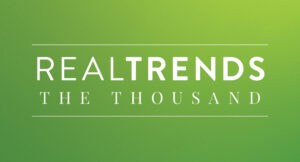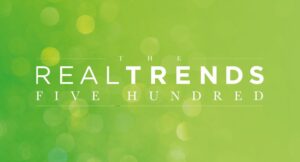I am sure this is not the first article to use this phrase in conjunction this particular subject, but I will give Wendy Forsythe, SVP of Network Services for Better Homes and Gardens® Real Estate, credit for pointing out that this would be the ideal title for this post.
And she was right. As any brand in any industry could attest, the question of focus is always a key consideration. Perhaps today more than ever, the considerations have reached a fever pitch. In a time of products, services and competitors flooding the market, of new media bringing new and exciting ways to reach consumers, and, most importantly, of the largest swath of the population reaching retirement age and rumored to be “slowing down”, the question of focus is more pressing than ever.
With the ramp up of Gen X, Gen Y and Millenials (collectively, the portion of the US population who are 18-45 years old), companies across all industries are salivating at the chance to capture as much share of wallet from these young, tech-savvy, purportedly non-brand-loyal (and thus possible to be swayed into different camps) people. But what does this mean in terms of the Baby Boomer generation: people born in the United States between the years 1946 and 1964? How should brands and companies integrate the Boomers—who have been reported to comprise more than 25{0a8e414e4f0423ce9f97e7209435b0fa449e6cffaf599cce0c556757c159a30c} of the US population and who number a staggering 78 million people—into a multi-segment business strategy?
A recent AARP event in New York City, entitled AdVantage: The 50+ Individual, set out to answer this question. Their guest speakers and panelists ranged from Russell Simmons, hip-hop entrepreneur, philanthropist and author, to Chris Gardner, the real-life inspiration behind Will Smith’s character in The Pursuit of Happyness, to the CEOs of Virgin America and Norweigan Cruiselines.
A few important themes became clear.
It’s not demographics that are important. It’s state of mind.
Traditionally, marketers have been obsessed with grouping people based on their age, income and other one-dimensional statistics from which sweeping generalizations are made about them. That is because we had nothing else to really go by that gave us a strong sense of who people were. Today, with the two-way dialogues possible with the Internet and social media, as well as with more exact information on people’s spending and web surfing habits, we can get a more holistic view of who our consumers are. In listening to the panelists from the retail, financial services, travel and media industries during the event, it became clear that with this information, an important truth has emerged. The language of Baby Boomers is the language of living, not retreating off into the sunset. They want to be their best selves, live their best lives. As real estate professionals, we need to meet their needs accordingly.

They participate. So engage with them.
The 50+ set is the fastest-growing consumer segment on Facebook. At the event, Google announced findings from a big study they did on Baby Boomers. The findings surprised me. This is not a group of technology-averse people. 60{0a8e414e4f0423ce9f97e7209435b0fa449e6cffaf599cce0c556757c159a30c} of 50+ people use the Internet to look into things they have learned from family and friends. 57{0a8e414e4f0423ce9f97e7209435b0fa449e6cffaf599cce0c556757c159a30c} use search immediately after seeing something on TV or read in a magazine or newspaper. 80{0a8e414e4f0423ce9f97e7209435b0fa449e6cffaf599cce0c556757c159a30c} of Boomers had equal or less brand loyalty than Gen X and Gen Y. That was perhaps the most surprising. I thought that many Boomers were brand loyal—could not be swayed to try something new. This presents an exciting opportunity for a brand to win new customers.
Stay relevant by raising your value game:
Sharon Ottoman, CMO of MSNBC and NBC Universal, said that in the news business, it is critical to provide your consumers—regardless of their age—context. Bring them value and information they can not get on their own. Be authentic. Communicate your message clearly and simply. These best practices are just as relevant to the real estate industry as they are in the news business. Use them in all of your interactions. Although technology has empowered the consumer to find a lot of information about their real estate transactions on their own, your expertise, guidance and fact-based counsel is what will help them make the right decisions.
While they may be buying differently, they are buying.
Executives from the retail, travel, and financial services industries all concurred that Baby Boomers remain a major force. The same is the case with real estate. They may be buying second homes, downsizing, or even upgrading because they have achieved a financial milestone—or because multiple generations of their family are living with them. One of the messages that came across was that at any point, at least one-third of people are in some stage of transition: health, career, family, economic or otherwise. Expect this and be ready to serve their needs.
Remember: it’s not about age. It’s about mindset. 50 is not the new 40, and 60 is not the new 50. Spinning age in such a way takes something away from this great generation. Engage with them. Be authentic. Provide value. Be relevant. And reap the rewards.








